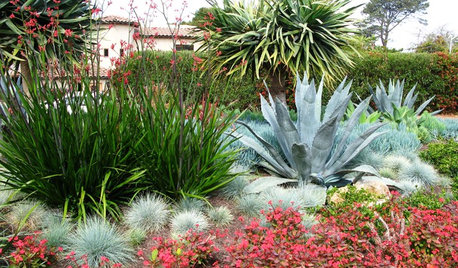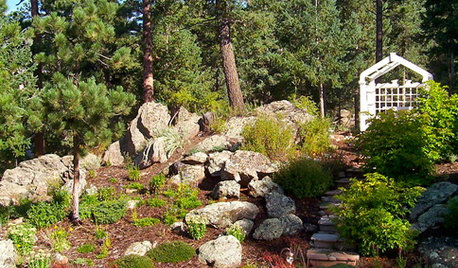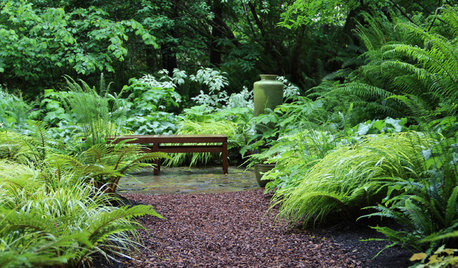soil test results- some questions
imtoobusy
19 years ago
Related Stories

GARDENING GUIDESHow to Stop Worrying and Start Loving Clay Soil
Clay has many more benefits than you might imagine
Full Story
GARDENING GUIDESGardening Solutions for Dry, Sandy Soils
Has your desert or beachy site withered your gardening creativity? Try these ideas for a beautiful, easy-care landscape
Full Story
FARM YOUR YARDHow to Get Good Soil for Your Edible Garden
The nutrients in your soil feed the plants that feed you. Here are tips on getting it right — just in time for planting season
Full Story
GARDENING GUIDESGardening Solutions for Heavy Clay Soils
What’s a gardener to do with soil that’s easily compacted and has poor drainage? Find out here
Full Story
COLORSpeed-Dial Color Selection to Get the Best Result
You’ve belabored your color decisions and are still stuck. Here is how to evaluate your space and make choices that are right for you
Full Story
GARDENING GUIDESGet the Dirt on Your Garden’s Soil
Understand how your soil supports your plants so you can ensure your garden’s success
Full Story
GARDENING GUIDESHave Acidic Soil in Your Yard? Learn to Love Gardening Anyway
Look to acid-loving plants, like conifers and rhododendrons, to help your low-pH garden thrive
Full Story
GARDENING GUIDESGrow a Beautiful Garden in Alkaline Soil
Got alkaline soil? Learn how to manage it and the many beautiful plants that will thrive in this ‘sweet’ soil
Full Story
GARDENING GUIDESThe Poop Scoop: Enrich Your Soil With Good Old Manure
Get over the ick factor already — this natural super-ingredient for soil has so many benefits, you'll wonder why you ever went chemical
Full Story
GARDENING GUIDES10 Solutions for Soggy Soil
If a too-wet garden is raining on your parade, try these water-loving plants and other ideas for handling all of that H2O
Full StorySponsored






mark_brown
imtoobusyOriginal Author
Related Professionals
Windham Landscape Architects & Landscape Designers · Ashland Landscape Architects & Landscape Designers · Comstock Park Landscape Architects & Landscape Designers · Prairie Ridge Landscape Architects & Landscape Designers · Signal Hill Landscape Architects & Landscape Designers · Frisco Landscape Contractors · Jackson Landscape Contractors · Amesbury Landscape Contractors · Duarte Landscape Contractors · Mahwah Landscape Contractors · North Lauderdale Landscape Contractors · Northport Landscape Contractors · Seminole Landscape Contractors · Oxon Hill Landscape Contractors · Kingsburg Landscape Contractorsmark_brown
barb5
imtoobusyOriginal Author
stan_gardener